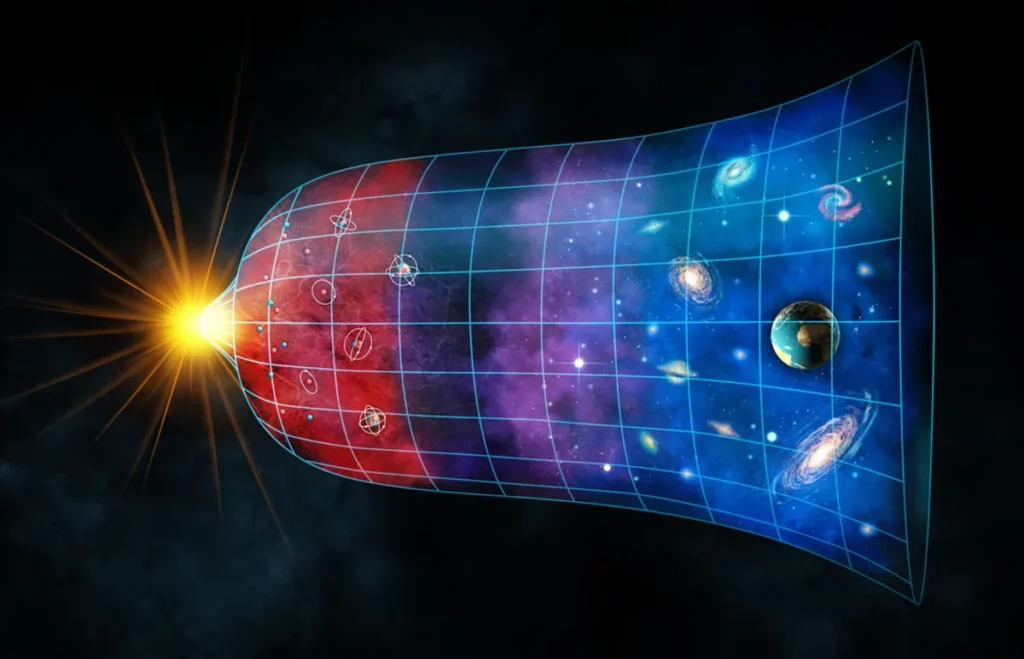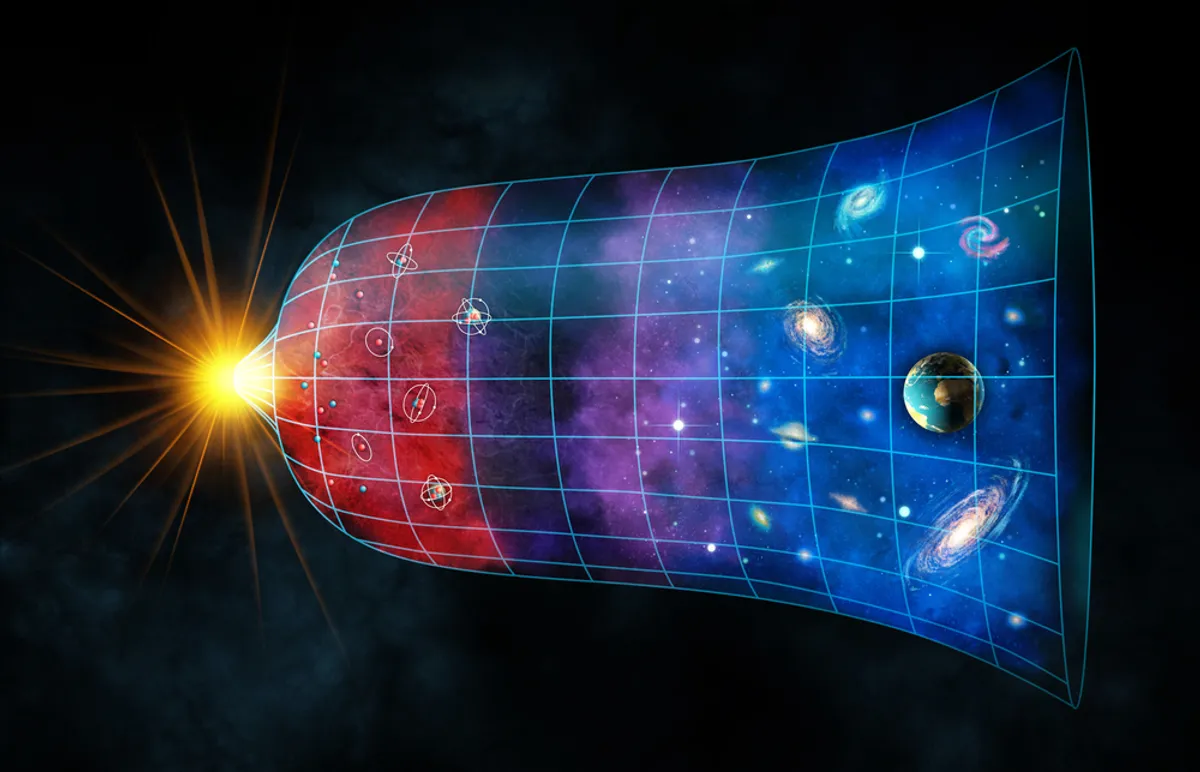
Introduction
The question of how the Big Bang, the event that marked the origin of our universe, could arise from nothing is one of the most profound and intriguing puzzles in cosmology. Scientists and philosophers alike have pondered this mystery, leading to several hypotheses that attempt to explain how the universe could have emerged from a state of “nothingness.” This article delves into some of the leading theories and concepts that explore this cosmic enigma.
The Concept of “Nothing”
Before diving into the theories, it’s essential to understand what is meant by “nothing.” In the context of cosmology, “nothing” does not refer to an absolute void but rather a state devoid of matter, energy, space, and time. This conceptualization challenges our everyday understanding of existence and forms the basis for several scientific theories.
Quantum Fluctuations
One of the most popular explanations involves quantum fluctuations. According to quantum mechanics, even in a perfect vacuum, there are temporary changes in energy that create pairs of particles and antiparticles out of nothing. This phenomenon is known as quantum fluctuations.
Vacuum Fluctuations: The idea is that the universe could have originated from a quantum fluctuation in a pre-existing vacuum state. These fluctuations can, in principle, generate enough energy to trigger the Big Bang.
Hawking’s Proposal: Stephen Hawking and other physicists have suggested that quantum fluctuations could lead to the spontaneous creation of small “baby universes,” one of which could evolve into our own universe.
The Role of Quantum Gravity
Quantum gravity theories, which attempt to unify quantum mechanics and general relativity, provide another avenue for understanding the origin of the universe from nothing.
Hartle-Hawking State: Proposed by James Hartle and Stephen Hawking, this theory posits that the universe is finite but has no boundary. In this model, time as we know it did not exist before the Big Bang. Instead, the universe began in a smooth, timeless state.
No-Boundary Proposal: This theory suggests that the universe could have emerged from a quantum state where time and space are intertwined in such a way that the concept of “before the Big Bang” becomes meaningless.
Vacuum Energy and the Multiverse
Another hypothesis involves vacuum energy and the concept of the multiverse.
False Vacuum: Our universe might have originated from a “false vacuum,” a metastable state with higher energy than the true vacuum. A fluctuation could have caused a transition to a lower energy state, releasing energy and causing the Big Bang.
Multiverse Theory: Some cosmologists propose that our universe is just one of many in a vast multiverse. In this scenario, new universes are continually being created through processes similar to quantum fluctuations, with each universe having its own physical laws.
Philosophical Perspectives
Philosophical interpretations also play a crucial role in exploring how something could come from nothing.
Existential Inquiry: Philosophers have long debated the nature of existence and non-existence, questioning whether “nothing” is a meaningful concept or merely a human construct.
Cosmological Arguments: Some philosophical arguments suggest that the universe’s existence is necessary and inevitable, given the laws of physics and the nature of reality.
Conclusion
The question of how the Big Bang could arise from nothing remains one of the most profound mysteries in science and philosophy. While quantum fluctuations, quantum gravity, vacuum energy, and multiverse theories offer intriguing possibilities, a definitive answer continues to elude us. As our understanding of the universe deepens through advances in theoretical physics and cosmology, we may one day unravel the enigma of our cosmic origins, shedding light on how something as vast and complex as our universe could emerge from nothing.
References
Scientific American: Quantum Fluctuations and the Origin of the Universe
NASA: The Big Bang
Stephen Hawking’s “A Brief History of Time”
Nature: Quantum Gravity and Cosmology
Philosophical Transactions of the Royal Society: Philosophical Aspects of Cosmology

